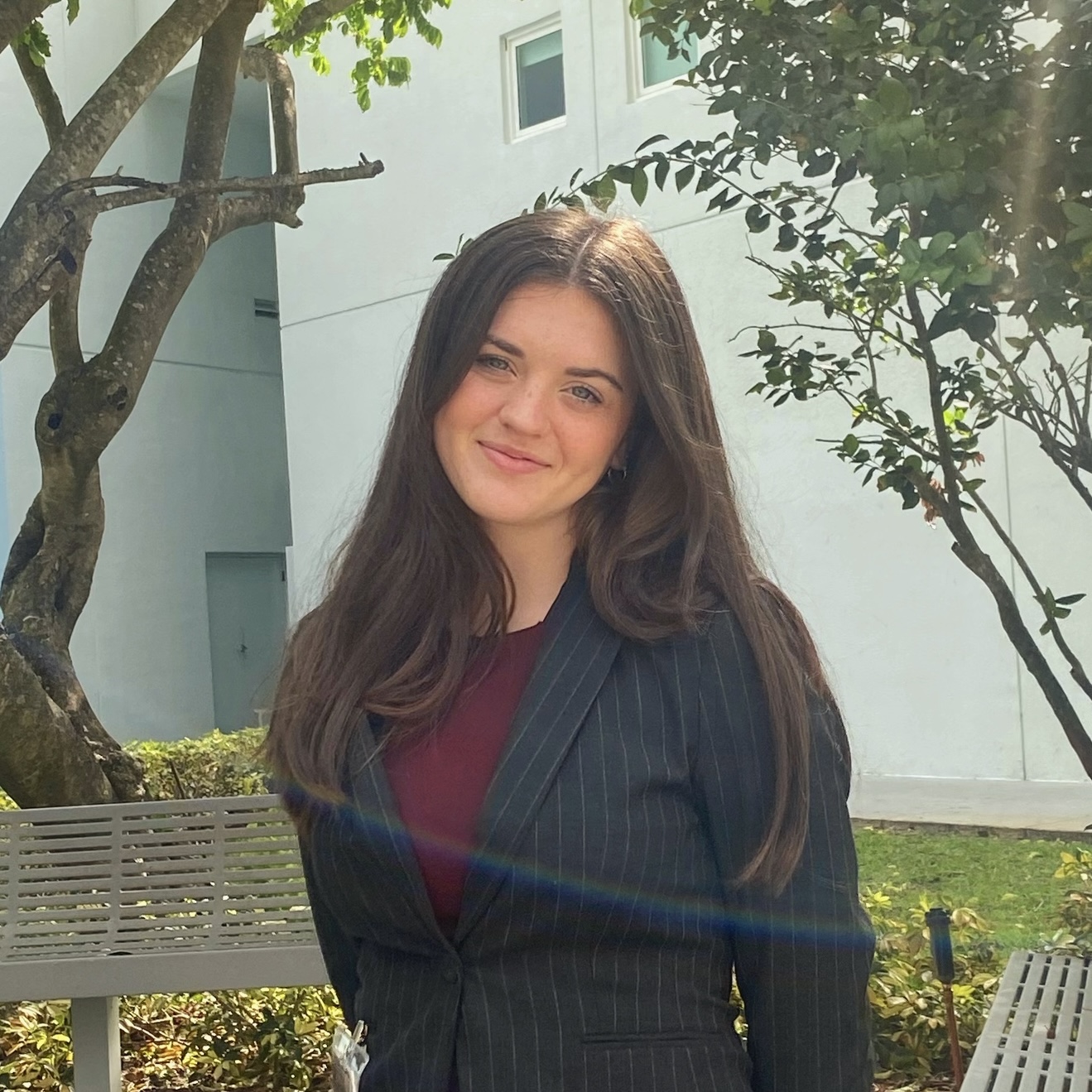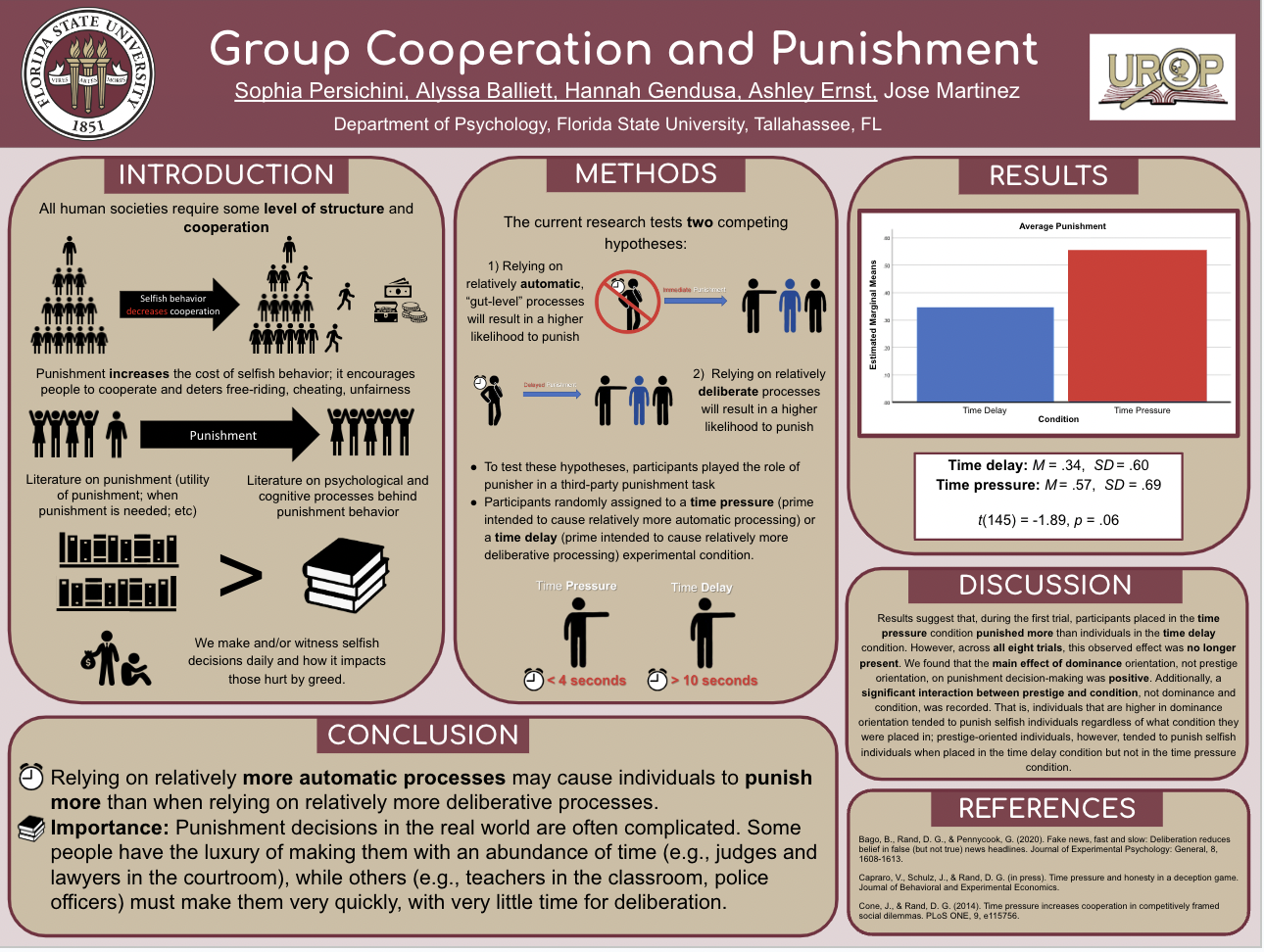Research Symposium
23rd annual Undergraduate Research Symposium, April 6, 2023
Alyssa Balliett Poster Session 4: 4:00 pm - 5:00 pm/ Poster #52

BIO
I am a first-year student from Lake Wales, Florida and I am currently a research assistant within the psychology department at FSU. Philosophy is my main academic interest and I hope to pursue a career in law. I am also highly interested in the fields of social work, sociology, and education because I enjoy learning about human behavior and how we interact with one another. With such broad interests, I look forward to furthering my experience with research and absorbing as much information as possible.
Group Cooperation and Punishment
Authors: Alyssa Balliett, Jose MartinezStudent Major: Philosophy and Social Work
Mentor: Jose Martinez
Mentor's Department: Psychology Mentor's College: Arts & Sciences Co-Presenters: Sophia Persichini, Ashley Ernst, Hannah Gendusa
Abstract
Across our evolutionary history, punishment has been shown to be a useful mechanism for increasing group cooperation and deterring selfishness. Little is known, however, about the psychological and cognitive processes driving such behavior – is punishing others something that people decide to do relatively quickly and automatically or is punishing others something that people do only after careful deliberation? The current research tests two competing hypotheses about the psychological processes driving punishment behavior – (1) punishment relies on relatively automatic and “gut-level” processes versus (2) punishment relies on relatively deliberative and purposeful processes. To test these hypotheses, we conducted a study where participants played the role of punisher in a group task in either a time pressure (intended to cause reliance on relatively more automatic processing) or time delay (intended to cause reliance on relatively more deliberative processing) condition. Results show that, on the first-trial of decision-making, individuals in a time pressure condition punished more than those in a time delay condition. Across all eight trials, however, this effect went away. These findings suggest that initial, first-impression costly punishment decisions can be made relatively quickly; when individuals make many decisions, and/or deliberate and think about these decisions, they may actually make less punishment choices (thus allowing the uncooperative behavior of a selfish individual go unchecked). Punishment can be a costly but necessary decision, and in everyday life there may be individual and situational factors that afford individuals the opportunity to make those choices.
Keywords: cooperation, punishment, selfishness

